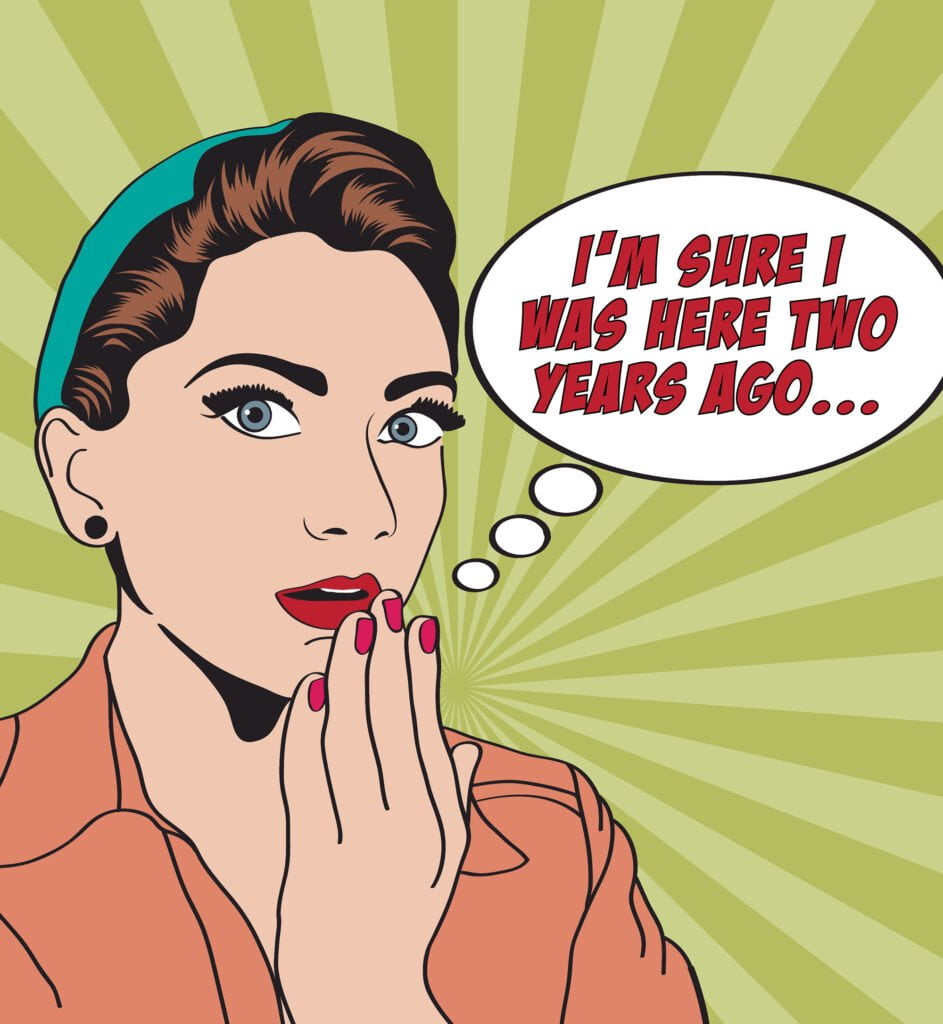 Did you miss it? The new year came, hung out for a bit being shiny, then quietly got back to business as usual. As we navigate March, and the second global anniversary of instability and strife, it certainly feels like the worst is behind us. However, after so much uncertainty, any optimism still has the power to fade into days that can at times feel heavy, uninspiring and repetitive.
Did you miss it? The new year came, hung out for a bit being shiny, then quietly got back to business as usual. As we navigate March, and the second global anniversary of instability and strife, it certainly feels like the worst is behind us. However, after so much uncertainty, any optimism still has the power to fade into days that can at times feel heavy, uninspiring and repetitive.
Welcome to the Covid-rut. While it’s not unusual to feel frustrated at various points in life, the past two years certainly take the cake. “As the Covid-19 pandemic continues to permeate all aspects of our life, we’re now presented with a world that is weirdly familiar but still so different. “Never have we experienced anything this comprehensively disruptive before, so it’s no wonder that we can feel ‘stuck’,” says Nigel Marsh, a New Zealand-trained clinical psychologist at James Cook University (JCU) in Singapore. “It’s the feeling that you’re on a hamster wheel, running but getting nowhere.”
Strip away choices
But cut yourself some slack. Expatriate communities around the world are composed of people who have chosen to leave their homes and move to a foreign country to establish a new life, if just for a few years. Continues Nigel, “They’re the types of people who like new experiences and get a buzz from facing fresh challenges. They tend to be active, not passive, in making life choices, and believe that by virtue of their own efforts they can achieve their goals. It’s no wonder that feelings of being hemmed in can occur.”
Of course, restrictions are public health measures, but they’ve removed options and opportunities in life that used to be energising. Choices continue to be stripped away and made more difficult to the extent that we feel any control of our own existence is reduced. “Humans like certainty, or at least the feeling that we can affect outcomes that are important to us,” explains Nigel. “We don’t do well with ambiguity as our brains get very focused on trying to make sense of or find a pattern to whatever situation we’re in. When we can’t see a way around a problem, we can get fed up, agitated, and finally, apathetic.”
According to Nigel, the usual rules of ‘pulling yourself together’ don’t necessarily apply in this a Covid-rut situation. “Any familiar solutions you previously used to deal with feelings of exasperation will have already been tried by now and you may have found that they don’t work so well,” he says. “You may need to adapt your personal psychological tools to pick yourself up,” he explains. Here’s where to start:
Turn your psychological tools around
- Watch your thoughts
Our psychology is a system of thoughts, feelings, and behaviours that are interlinked and feed back on each other. So a change in any part can benefit every part. If you find yourself brooding, distract yourself with something that requires you to think about what you’re doing, rather than ruminating on the distressing things that you cannot change. Taking part in team sports, doing some gentle yoga, and cooking can be helpful - Stay connected
It’s more important than ever to connect to others. Primarily, we are our relationships with other people, and not just family, friends and work colleagues, but also casual acquaintances like our favourite noodle soup auntie. We are social beings. Even a morning walk is greatly improved when in a Covid-rut if you say a simple “good morning” to someone along the way - Pick up your schedule
Remember what you used to enjoy and start scheduling what you can back into your life, to as much as current circumstances permit. Look for new opportunities that include hobbies you used to enjoy or take you out of your comfort zone. Singapore is not nearly as humdrum as many of us probably thought – the pandemic has revealed there really is lots to do. Join ANZA’s walking and cycling groups to discover the island, and our mahjong and Ladies Nights to make new friends - Say sorry
Of course, our own negative feelings will impact how we relate to other people too. If you find yourself overreacting to something your partner, child, or colleague does, it’s important to own the mistake. Say “sorry, I’m a bit strung out at the moment”. They’ll understand because they’re living in this situation with you. It’s simple and it works - Avoid crutches
Maintaining physical health is essential to your mental health. Stay active, avoid over processed food, maintain good sleep habits, and be mindful of leaning on chemical crutches such as alcohol - Create space from your job
Becoming enmeshed in work has been a maladaptive response to the loss of control people have experienced over other aspects of their lives. As we return to the office, reset the boundaries between work and life. Similarly, children are not just their school work - Seek help
If pessimism starts to permeate your life and results in you neglecting responsibilities – including your responsibility to yourself to live a rewarding and enjoyable life – you may need to seek professional assistance. Happy and sad are not separate categories; they are the anchor points at the opposite ends of a line. When we feel ‘stuck’ we’re at the midpoint of the line
Finally, it’s important that we all monitor the feelings of those around us. “We’ve been dealing with fear and frustration for two years, and the mental health issues attached to this are a concern. Regularly check in with others by asking “how are you, are you okay?” Help them set a few achievable behaviour goals, and then facilitate them to do these things. This approach is called ‘behavioural activation’. Failing this, a virtual hug, and a listening ear can work wonders.








